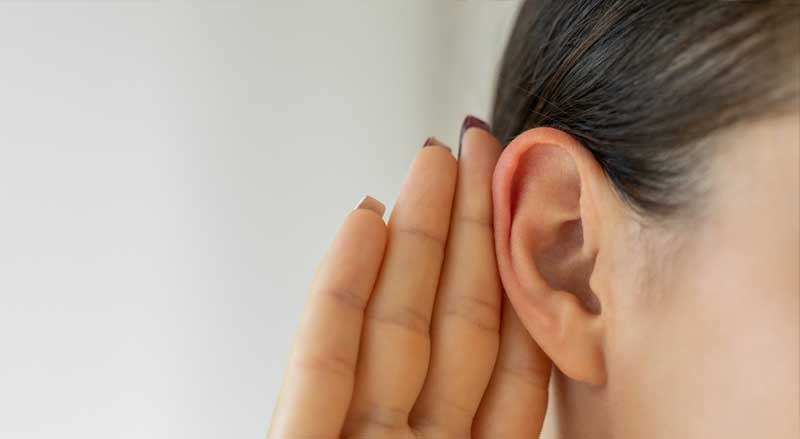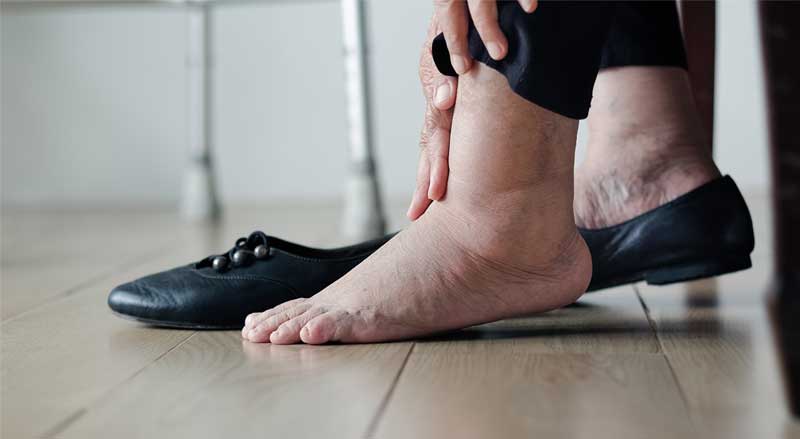We all understand the importance of being good listeners. Actively listening to others creates trust, collaboration, and prevents misunderstandings. But how many of us listen to what our bodies are trying to tell us? Learn how to understand your body to improve your health.
Here are some things your body may be saying. When you listen closely, you’ll find you both speak the same language!
Ways to Listen to Your Body
Keep a Journal
Write in a journal daily and talk about how you are feeling physically. Are you having trouble sleeping through the night or experiencing an upset stomach?
And don’t forget your emotional health. Are you feeling overly stressed or depressed?
Then watch for patterns. Patterns can connect physical or emotional feelings to your diet, other events in your day, or even other symptoms.
Pay Attention to Your Stomach
Do you feel lethargic or bloated after eating? Keep track of the foods you eat and how you feel afterwards.
This can uncover food-related issues, such as lactose intolerance or food allergies. Try removing the disagreeable foods from your diet and see if the symptoms disappear.
If necessary, review your findings with your doctor to discover a possible underlying medical issue.
Listen to Your Digestive System
Your colon may tell you it’s feeling bloated or painful. Or you may need to strain to go to the bathroom.
There are things you can do to make bowel movements regular, including:
- Eat 30-40 grams of fiber daily
- Eat 5-9 servings of fruits and vegetables
- Drink plenty of water—about eight glasses a day
If symptoms persist, contact your doctor.
If your family has a history of colon cancer, your doctor may recommend a colonoscopy.
Pay Attention to Allergic Reactions
Do you commonly experience:
- Sneezing and/or runny nose
- Hives and/or rashes
- Itchy eyes
- Stomach cramps and/or vomiting
These symptoms can all be signs of food or environmental allergies.
A doctor can test you for allergic reactions. If they find an allergy, eliminate the irritant if possible and/or get allergy treatment so you will feel better.
Think About Your Mental Health
Are you depressed or anxious and you don’t know why? Are feelings of anxiety, or other emotions, interfering with your everyday life?
Do you have persistent feelings of:
- Sadness
- Worthlessness
- Despair and hopelessness
- Exhaustion
- Poor concentration
- Loss of interest in almost everything
These can be signs of a mental health disorder.
The National Institute of Health estimates that “one in five U.S. adults live with a mental illness.” The great news is that many treatments are available so people can manage their illness and lead fulfilling, satisfying, and productive lives.
Contact a mental health professional and start to feel better!
Notice If You’re Feeling Tired
Everyone feels tired at times, but persistent feelings of tiredness can mean health issues that you should discuss with your doctor.
To increase your energy, try:
- Eliminating carbs and foods with added sugars from your diet
- Eat superfoods to help fight inflammation and pain
- Exercise three days a week for 20 minutes a day
- Learn to meditate for ten minutes a day
Pay Attention to Your Sleep Habits
Your body can’t function optimally without enough quality sleep.
Lack of sleep can even hurt your heart’s health and weaken your immune system. Learn more about the effects of sleep on your health.
If you wake up in the morning still tired, try:
- Keeping your bedroom quiet, cool, and free of lights from electronic devices
- Avoiding caffeine after 2 pm-4 pm
- Avoiding alcohol within 3 hours of going to sleep
- Avoiding heavy meals before bedtime
Listen to Your Hair and Skin
Your hair and skin say lots about your health.
Has your hair recently changed in texture or volume? Are you suddenly losing a lot of hair? This can show a hormonal or nutritional imbalance in your body.
Does the skin on your face have patches of different tones? Are they reddened or dark? This can indicate a medical condition, as will yellowing or orange-looking skin.
Share these findings with your doctor.
Watch for Signs of Varicose Vein Disease
Do you have any of the following symptoms:
- Heaviness, achiness, or pain in legs, especially at the end of the day
- Itchiness near veins
- Leg cramps
- Swollen feet and ankles
- A feeling of pressure in the legs
- Sores on the legs and ankles
- Swollen or bulging veins
All these symptoms can be signs of varicose veins or chronic venous insufficiency (CVI) disease.
Read more about the diagnosis and treatment of varicose vein disease.
Find out how exercise helps promote healthy veins.
Pay Attention to Sudden Stroke Symptoms
We can easily remember critical signs that you or another person are experiencing a stroke by using the B.E. F.A.S.T. acronym.
B.E. F.A.S.T stands for:
- B—Sudden problems with balance or coordination
- E—Eye problems-sudden blurred or double vision, or loss of vision without pain
- F—Face Drooping
- A—Arm Weakness
- S—Speech Difficulty
- T—Time to call 911 IMMEDIATELY
Indicators of Good Health
You’re on the right track if your body’s telling you these things:
- You feel energetic and rarely have muscle strains or pains
- Your bowel movements are consistent and show no noticeable changes in color or consistency
- You sleep with minor interruption, fall back asleep in under 20 minutes, and feel well-rested in the morning
- Your skin is hydrated, clear, and even in tone
- Your hair has a sheen, little breakage, and little shedding
- Your gums are pink and healthy and don’t bleed with tooth brushing or flossing
- You easily concentrate, remember things, and can let go of negative experiences without lingering worrisome thoughts
Get Regular Checkups
Now that you know how to listen to your body, make an appointment to talk to your doctor about any health concerns.
Also, make it a lifetime habit to visit your doctor for a yearly checkup. This way, many medical problems can be detected early, when they are most treatable.
If you are looking for a varicose vein specialist, contact us at NJVVC for a free vascular screening and complete vein care.






